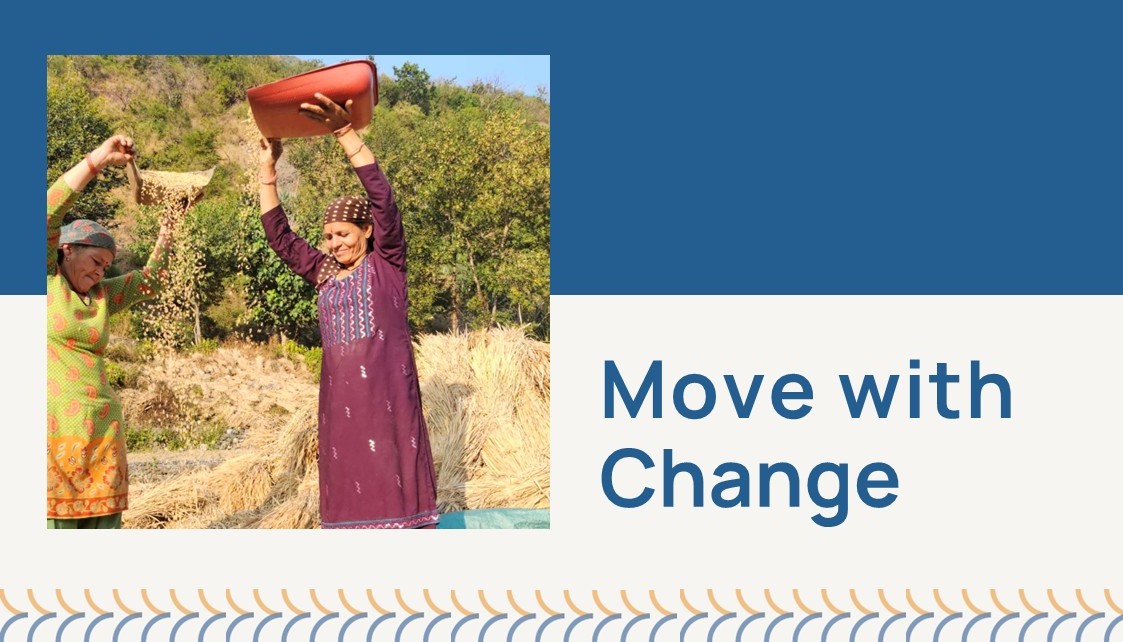When Stephanie Jerger joined the staff of the Organic Trade Association in 2014, one of her first tasks was to fill out an RSF Social Finance impact assessment, which was required for the OTA’s loan renewal application. Jerger answered questions about the OTA’s culture and supply chain, as well as its justice, equity, diversity and inclusion efforts. When she did the same assessment two years later and compared it with 2014’s data, she was disappointed that the association was becoming whiter and more male. Not one to sit idly by, Jerger brought her findings straight to the top—along with a plan to catalyze change.
She sat down with Laura Batcha, the organization’s CEO, to discuss the assessment and her plans. “We’re working with a social responsibility lender,” she told Batcha, “but we’re going in the wrong direction.” Batcha asked for her recommendations, and Jerger suggested they start by taking the information to the board. The CEO agreed. That led to a commitment to diversify the board, and Jerger reached out to Kellee James, a Black woman and the founder and CEO of Mercaris, an organic online market data and auction service, and asked her to join the board. Next the board recruited Javier Zamora, a farmer and the owner of JSM Organics, and Mike Menes, vice president of food safety and technology at True Organic Products. Within a few years, the board went from no people of color to 20% people of color, and the diversification effort is ongoing.
Jerger, now vice president of administration, has implemented many other diversity efforts since. As the only Black employee on the 20-person staff, she knew from the outset that the OTA needed a change. She credits RSF’s impact assessment as the trigger the OTA needed to really commit to the work. “It started a snowball,” says Jerger. “I had the metrics, the numbers, to show them and to say, ‘You have a problem.’ Thankfully, I work for an organization that listens.”
Farmer-founded organization has major policy influence
The OTA was created in 1985 by a group of organic advocates in New Castle, Delaware, who wanted a say in U.S. agricultural policy. They later established an office in Vermont, and then one in Washington, D.C., where the association is headquartered today.
From its original nine board members, the organization has grown to represent more than 9,500 members across the country and is the leading voice on organic trade, agriculture and policy. “They’re real ambassadors for the organic movement,” says Melinda Cheel, senior director of marketing at RSF. The OTA was the driving force behind the creation of the National Organic Program at the U.S. Department of Agriculture, which oversees national organic regulations and the USDA Organic certification.
Working capital from RSF supports growing impact
As a small nonprofit dependent on membership dues and USDA grants, the OTA sometimes needed to bridge cash-flow dips. In 2012, the organization approached RSF, asking for a $400,000 line of credit. At the time, says Ali Robinson, RSF’s senior manager of social enterprise lending, “it was slightly out of the box for conventional lenders to do this type of lending, rather than basing a loan on accounts receivable.” But RSF took the risk and offered OTA a loan.
“We really wanted to grow, and we always felt like we had the money, but we never had enough at the right time,” Jerger says. “RSF’s loan really helped us float important projects into the next period.”
With stable financial footing, the trade organization has been able to concentrate on advocating for organic farming, and is now working on several critical issues, including the Continuous Improvement and Accountability in Organic Standards Act. If passed, this legislation would expand access to organic food, strengthen organic regulations, combat organic fraud and address other organic-related agricultural issues.
Ongoing efforts produce a more diverse and equitable OTA
The OTA’s diversity efforts have expanded as well. When it came time for the nonprofit to do its annual audit in 2021, for example, Jerger asked OTA’s outside accounting firm to recommend new auditors. The firm returned a list of four white-owned companies. She responded with, “No. I will accept that I may not find a soil tester who’s Black, but I cannot believe that you cannot recommend one audit firm owned by a person of color.” The next list contained two more auditing firms, one owned by a Latino man, the other by a Black woman.
Jerger removed all demographic information and presented the proposals to the board for a blind review process. In the end, the board chose the Black-owned company, which Jerger describes as “the most efficient auditor we’ve ever had.”
The OTA has worked to diversify its membership too, and one of Jerger’s proudest accomplishments is that the National Latino Farmers & Ranchers Trade Association recently joined the OTA’s Farmers Advisory Council. This group of small- to medium-size organic farmers, ranchers and growers provides input on issues relevant to advancing organic agriculture. That was the result of a lot of relationship building—in part, Jerger says, because BIPOC farmers often view organic as elitist and expensive.
To change this perception, the OTA is offering a free two-year membership to BIPOC-owned farms and organic companies, as well as a stipend that matches a cost-sharing program at the USDA to help BIPOC farmers gain organic certification. The trade association fundraised $50,000 from its membership so Jerger could promote the program and recruit participants, an effort that included hiring two graduate student “fellows” to reach out to BIPOC farmers and BIPOC-owned organizations. “It’s been a lot of cold-calling and cultivating relationships,” Jerger says. But the efforts have paid off: 12 new BIPOC members have recently joined.
The OTA also hosts panels that address the intersections between BIPOC-owned farms and environmental issues, including a recent discussion of pesticides and how they affect communities of color.
Jerger says it’s likely none of this would have happened—at least not as soon—if she had not had the metrics from RSF’s impact assessment. “RSF has provided us with a crazy amount of value,” she says. “For one, it forces us to constantly look at ourselves, at our metrics, and ask, ‘Are we meeting our own goals? What do we need to do if we’re not?’ It really gives us a good metric about how we’re doing and making sure we are who we say we are, in a tangible way.”


